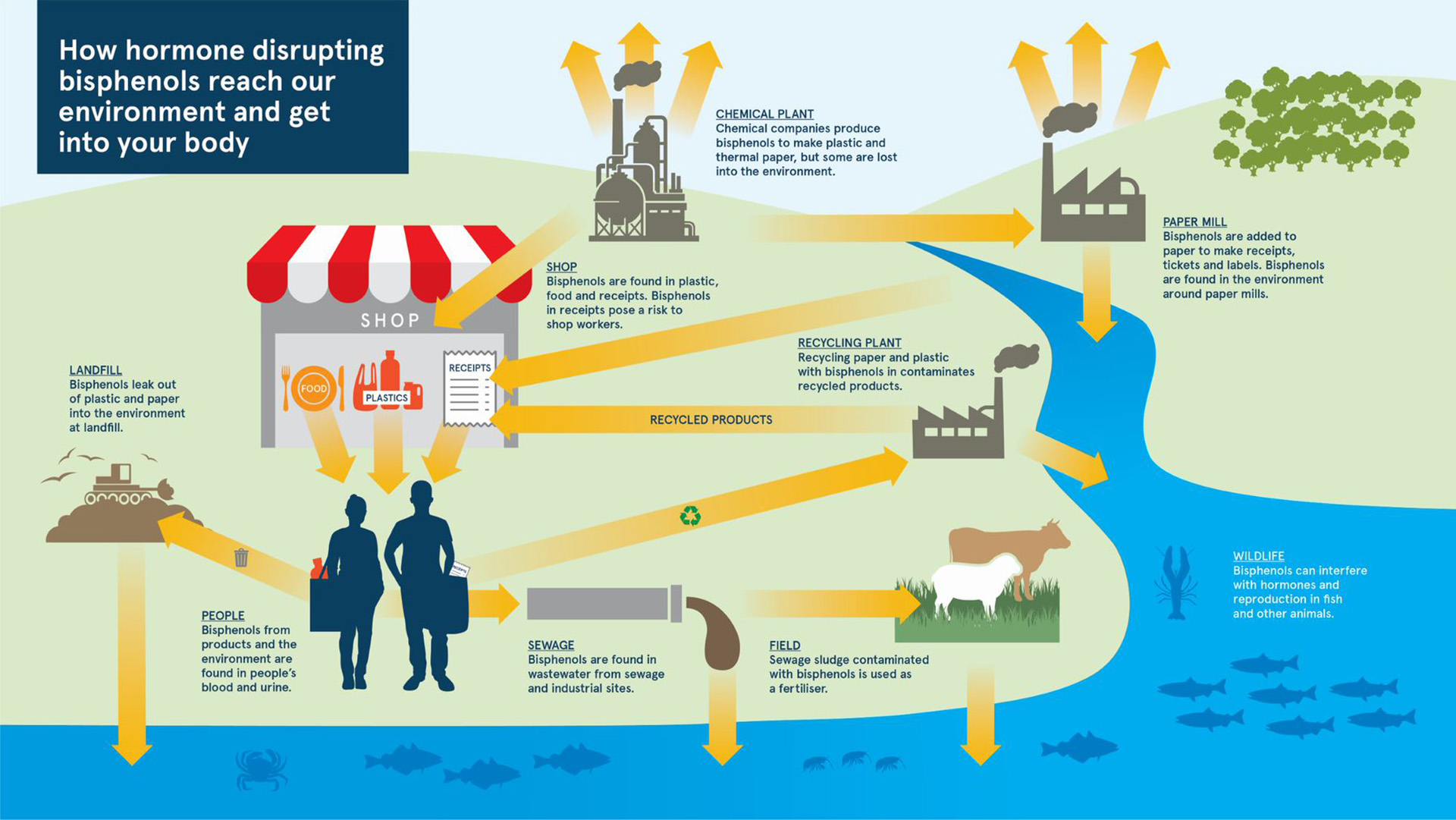A FIDRA PROJECT
Bisphenols safe receipt project
To limit resource and energy use, we need a circular economy where products are repaired, reused and recycled safely. But harmful chemicals, like bisphenols used in receipts, are contaminating recycled products. Bisphenols pollute our environment and are known to disrupt hormones, growth and reproduction in people and wildlife.

THE PROBLEM
Bisphenols, also known as ‘Everywhere Chemicals’, are often used in receipts and tickets.
There is increasing evidence that bisphenols are harming the environment and human health.
Bisphenols in receipts are a risk to the unborn children of shop workers and can contaminate paper recycling streams.
A wide range of chemicals (pesticides) are used in agriculture and so can be found in food. Photo by Tomas Herogh on Unsplash
THE SOLUTION
Alternatives to bisphenols in receipts, such as digital receipts and phenol free paper, are readily available.
Some countries have already banned bisphenol A (BPA) from use in receipts. Now a ban on all bisphenols is needed to ensure the safety of receipts and recycled paper.
Many UK retailers have voluntarily switched to bisphenol free options and support a ban on all bisphenols in receipts.
Bisphenols in receipts contaminates recycled materials if incorrectly recycled, if in doubt throw it out!
OUR ASKS
Governments: Ban all bisphenols in receipts
Retailers: Ensure your receipts are bisphenol free and offer digital receipting
Shoppers: Say no to receipts or go digital
Bisphenols exposure has behavioural effects on wild mammals, including field voles
WHAT WE’VE ACHIEVED
Most UK supermarkets now use bisphenol free receipts
Many retailers support a ban on bisphenol in receipts
We want UK REACH to restriction bisphenols in thermal paper used for receipts and tickets

